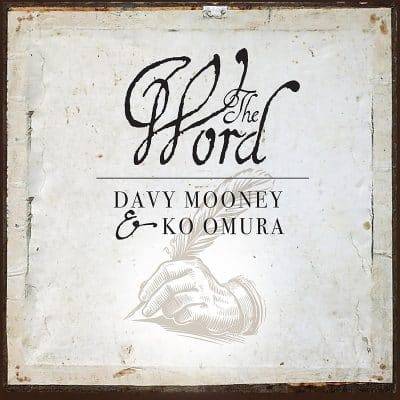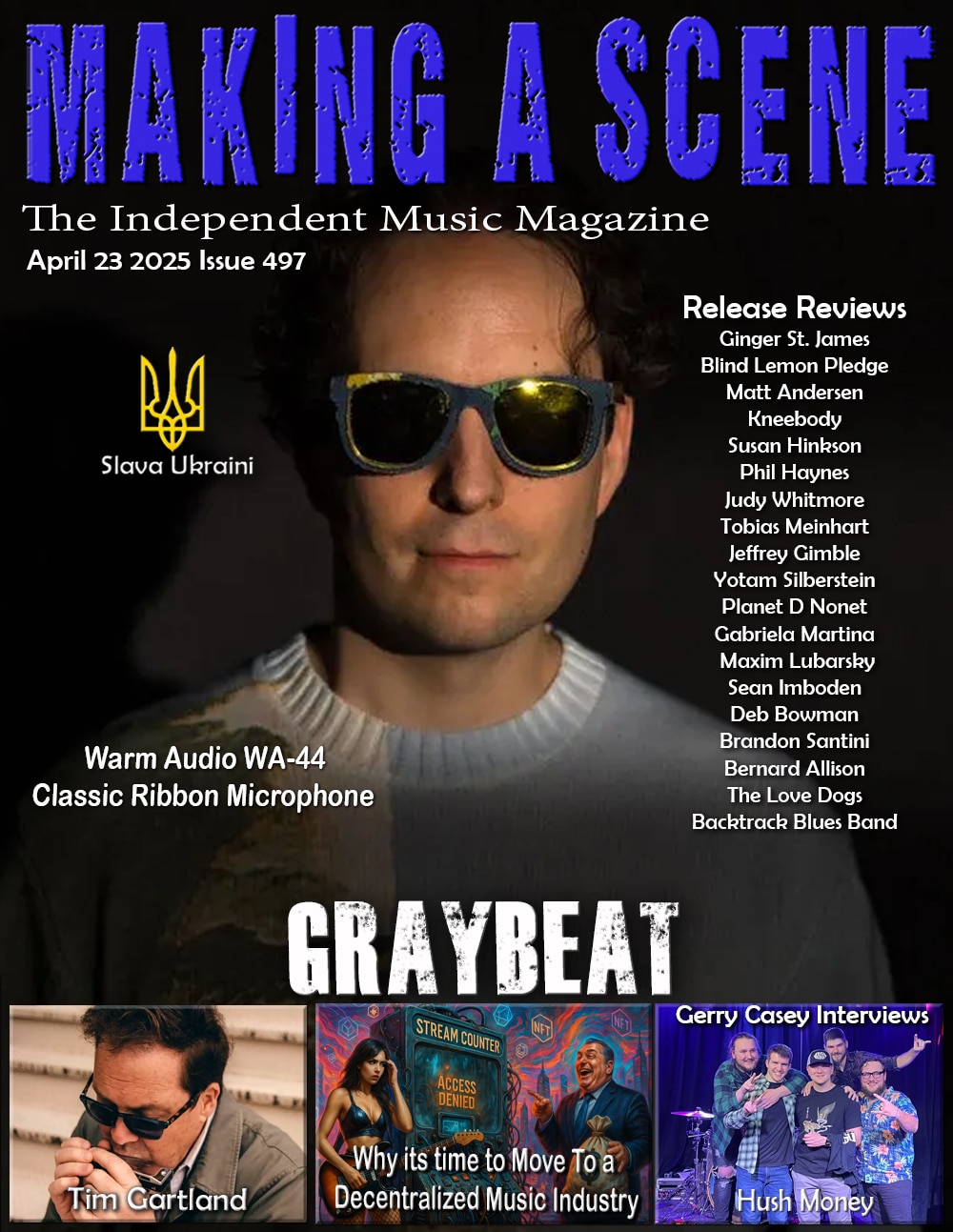Davy Mooney & Ko Omura The Word
 Davy Mooney & Ko Omura
Davy Mooney & Ko Omura
The Word
Sunnyside
Guitarist Davy Mooney and his Japanese buddy, drummer Ko Omura collaborate for their sophomore release, The Word. Just as they did for their 2018 debut, Benign Strangers, they run it back with sextet members that include the in-demand woodwind ace John Ellis, and fellow New Yorkers, pianist Glenn Zaleski who is a bandleader himself, and the well-rounded bassist Matt Clohesy. Mooney and Omura split the writing on these ten compositions and most alternate in the sequencing. They are mostly highly melodic and inventively textured but contrasting just the same. Mooney’s music is usually darker and highly structured while Omura’s are warm, more elastic, and free. The latter takes his inspiration from Indian music and can be heard on tabla on two pieces.
Omura’s “Sheep Wash” opens with shimmering piano from Zaleski and a whirlwind of percussion from Omura, setting the stage for beautiful intertwining melody lines from Mooney and Ellis on tenor in unison before they each swap lines, yielding to a bright turns from the pianist and guitarist who plays with a full, robust tone. The warmth in Omura’s compositional style is evident right away in this empathetic story of a man washing his sheep against the animal’s will. The harmonic palette is so sweet and the ‘wash’ in the title is apropos as the music just flows so gently. Immediately Mooney conjures dark chords in his “Wormcast,” a 24-bar blues built on the winding, sinewy trails that worms leave as the burrow through the ground. Mooney takes the lead with a searching, spiraling solo with Ellis reflecting the melody on tenor to boisterous support from Omura on the kit. Zaleski jumps in with his series of bluesy runs, slightly raising the intensity. Another Mooney tune, the title track follows in one of two places where the composers don’t alternate. This one is a little brighter but still pensive, again with Ellis on tenor as the idea was born as the guitarist sat through a wedding sermon.
“Purusha” brings us back to Omura’s writing and by now the difference between the two composer couldn’t be more evident. This one has a strong melody line over a complex harmonic structure which has the rhythmic section playing very freely. Appropriately, the title references Hindu ideology of what is beyond the physical aspect of the universe. Mooney’s “Groove for Clyde” is the first of three where we hear Ellis on bass clarinet, giving more depth, along with Clohesy’s robust bass line, to the group sound as they pay tribute to Mooney’s former teacher, New Orleans trumpeter/educator Clyde Kerr Jr. In the second half of the piece, Ellis switches to soprano, soaring mightily and giving the tune a far more energetic sheen. Omura’s “K.I.” (Kaida Inspired), like its predecessor, uses cyclical patterns throughout the various solos. The drummer’s “Ektaal” is one his more contemplative pieces and he’s heard on tabla for the first time, taking it up again on “Dattatreaya,” arguably presenting the most free playing of the ten. The lighter sound of the tabla allows changes the timbre quite drastically with Zaleski’s effervescent piano contrasting with the deep tones of Ellis’ bass clarinet on the first piece.
Mooney’s two pieces in the latter portion are quite different from each other. “Lord and Master” employs a tricky 12/8 rhythmic pattern in different groups with an improvised solo section centered on Ellis’ bass clarinet. Closer “Maybe,” on the other hand is Mooney’s most uplifting piece, a boss nova where Ellis returns to tenor after playing mostly bass clarinet and soprano saxophone in the second half of the album. His playing alone provides the colorful, shifting textures and he is especially compatible and complementary to Mooney’s melodic excursions.
The two constants here are Mooney and Zaleski, both playing superbly yet the strength of the album is the contrast in the writing styles, Ellis’ use of his array of woodwinds, and Omura’s creative use of both the kit and the tabla to provide not just merely rhythm but different threads to the overall soundscape.
– Jim Hynes
Buy Us a Cup of Coffee!
Join the movement in supporting Making a Scene, the premier independent resource for both emerging musicians and the dedicated fans who champion them.
We showcase this vibrant community that celebrates the raw talent and creative spirit driving the music industry forward. From insightful articles and in-depth interviews to exclusive content and insider tips, Making a Scene empowers artists to thrive and fans to discover their next favorite sound.
Together, let’s amplify the voices of independent musicians and forge unforgettable connections through the power of music
Make a one-time donation
Make a monthly donation
Make a yearly donation
Buy us a cup of Coffee!
Or enter a custom amount
Your contribution is appreciated.
Your contribution is appreciated.
Your contribution is appreciated.
DonateDonate monthlyDonate yearlyYou can donate directly through Paypal!
Subscribe to Our Newsletter
Discover more from Making A Scene!
Subscribe to get the latest posts sent to your email.













































